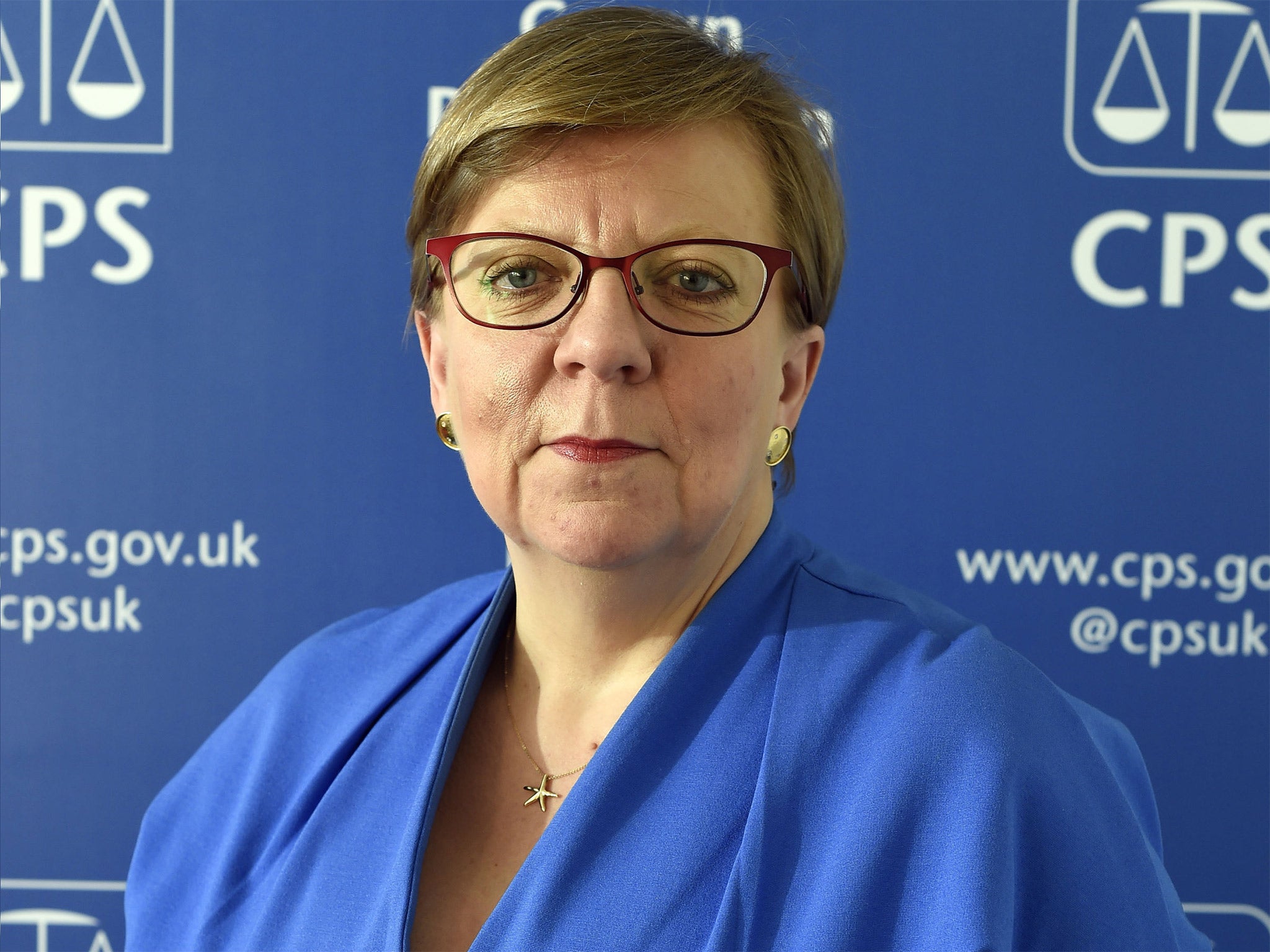Prosecutors could examine suspected rapists' past treatment of women to increase conviction rate
Director of Public Prosecutions says cases should be presented 'in a way that doesn't just look at the individual incident'

Prosecutors could be instructed to examine alleged rapists’ past sexual behaviour and treatment of women as part of efforts to increase conviction rates.
Alison Saunders, the Director of Public Prosecutions, said she wants all evidence available on a defendant to be presented in court including CCTV, social media and witness testimony covering the lead-up to attacks.
“We are looking at how to prosecute certain types of cases, the more difficult ones. They tend to involve drugs or drink and people who know each other,” she told the Evening Standard.
“Some of it will be if you have already been in a relationship, understanding the dynamics of coercive and controlling behaviour and presenting cases in a way that doesn’t just look at the individual incident.”
Ms Saunders pointed out that the involvement of drink or drugs can lead a victim’s account to be picked apart by the defence but that it can also be used as evidence of intent, adding: “If it’s about drink and drugs, in some of them there will have been a targeting element, either by buying drinks or standing back until you pick somebody off.”
The Office for National Statistics said 41,150 rapes were reported in England and Wales from April 2016 to March - up 15 per cent on the previous year - with a fraction of those expected to reach convictions.
New advice being considered could instruct prosecutors to look at the previous conduct of “controlling” men who assault their girlfriends, amid concern that some rapists are being acquitted because prosecutions concentrate only on time period where the alleged crime took place.
The Crown Prosecution Service (CPS) said new guidelines have not yet been drawn up or issued, and that the discussion forms part of a periodic review of guidance on rape.
Its current policy statement, which was updated in 2012, details the difficulty of bringing evidence to the required benchmark of “beyond reasonable doubt” before a jury.
The CPS document notes that rape normally takes place “in a private setting where the victim is the only witness” and the prospect of being cross-examined in court can discourage victims from coming forward.
“Cases may fail because a jury cannot decide between what the victim says and what the defendant says,” it notes.
“This is why it is essential to obtain all possible forensic and scientific evidence as soon as possible. The earlier a rape is reported, the higher the chance of this being done, and the higher the chance of building a strong prosecution case.”
The existing guidance says prosecutors will challenge “myths and stereotypes” to uphold justice and support victims, with cases able to proceed even if they withdraw a complaint.
If you would like to speak to someone about sexual violence, call Rape Crisis on freephone 0808 802 9999 or visit their website here.
